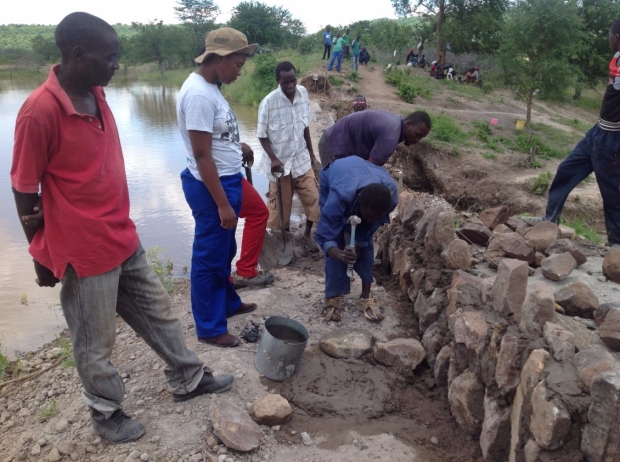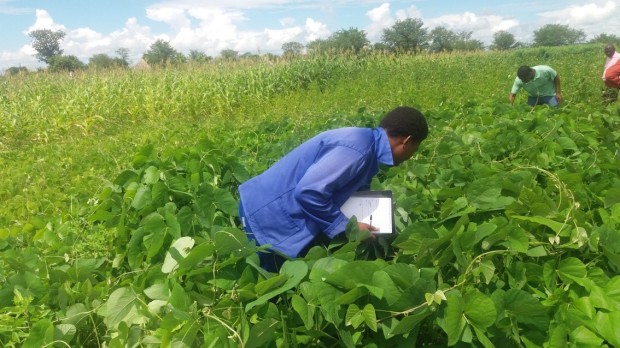By Tabea Zimmermann
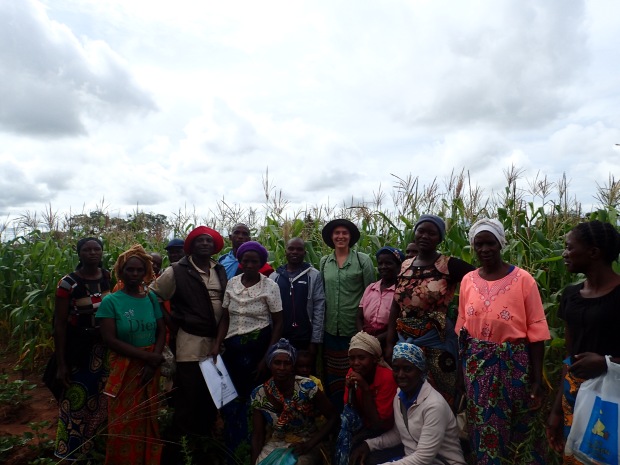
Farmer-to-farmer field days are one of the most effective ways for farmers to learn from each other and be encouraged to apply CA principles on their own fields and gardens. In February 2017, about 20 farmers from Halumba, Mbabala area, participated by visiting the fields of 3 CA farmers, asking lots of questions and raising good discussion about fertilizers, weed suppression methods, seed varieties, and ripping techniques.
Compassionate Ministries (CM) is a project based out of the BIC (Brethren in Christ) church’s central office in Choma, Southern Province, Zambia. CM is currently running a Household Food Security project whose aim is to “increase household food security in targeted communities, focusing on drought resistance and conservation agriculture, while strengthening local leadership” (Project proposal, August 2016). In addition, this project has a strong focus on gender sensitization and continuing support for community savings groups (VSLA’s) which were established in the previous CM project which ran 2013-2016. CM has six staff: Project Manager, 3 Food Security Officers, Project Gardener, and Project Information and Data Collector. Each Food Security Officer is assigned to coordinate activities and community mobilization in one of three communities in the Choma area: Siamvula, Siagabanga, and Mbabala.
CM’s approach to community mobilization is to engage multiple levels of leadership, including church leaders, traditional headmen, and other local leaders. Through participation and incorporating input from zone committees, the BICC hopes to more effectively establish community support and adoption of its project goals. Project officers have trained and continually support Lead Farmers in each community, who are expected to in turn support a group of farmers and serve as liaisons between their community and CM project officers. Project officers carry out workshops in their assigned communities on a quarterly basis, training farmers on Conservation Agriculture (CA) principles, drought-resistant crops and climate change mitigation, gender sensitization, and leadership trainings to participating community leaders. In addition, they visit individual farmers to provide technical extension services and coordinate farmer-to-farmer field days for project participants to exchange ideas and learn from each other.
My role as a Seeder is to accompany Compassionate Ministries in carrying out its Household Food Security project. Unlike the other project officers, I am based directly in one of the communities in which CM is working. This allows me to work closely with farmers in their fields, learning from and assisting in their daily farm work, and sharing other aspects of life with the community. It is often during evening conversations around kitchen fires or long walks to and from church that I have the most productive discussions and am able to share ideas or information about conservation agriculture and food security. Each day in Halumba (Mbabala area) brings surprises, but I am most likely tending to my own CA demonstration plots, working in my host family’s or neighbors’ fields, or visiting farmers. I often serve as a telephone, communicating with project officers in Choma about workshops or meetings, and then biking around the community spreading the news and coordinating logistics.
A challenge farmers in my community have in adopting Conservation Agriculture is applying soil cover on a larger scale of 1-10 ha. There is a growing interest in experimenting with beans and legumes as green manure cover crops to protect and add nutrients to soils while suppressing weeds and providing an additional source of food. A personal goal during my remaining time as a Seeder is to explore these cover crops as a means to make CA more viable for farmers on the scale necessary for them to provide sufficient and nutritious food for their families throughout the year.
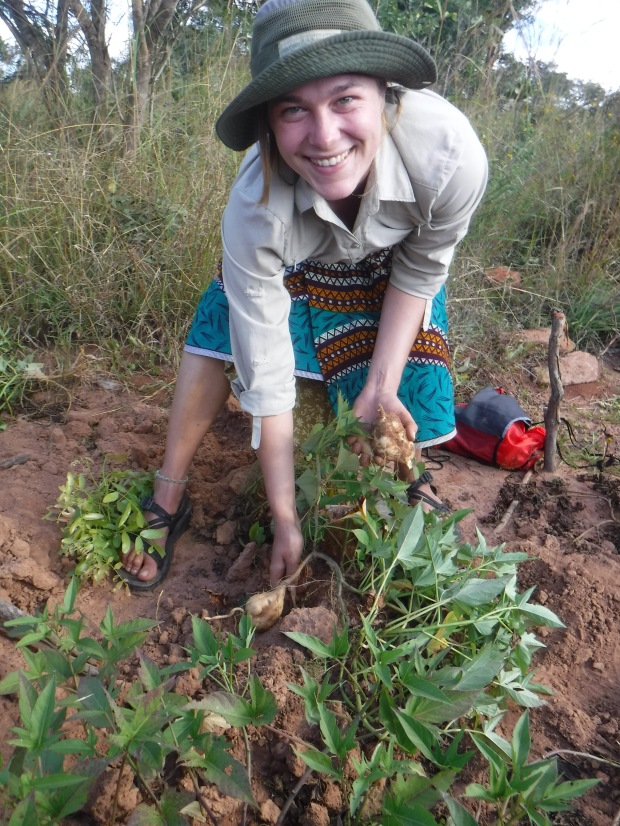
After months of hoeing, planting, weeding, mulching, and letting the sun, rain, soil, and insects do their magic, I had the joy of harvesting my crops from the CA demonstration plot I have been managing in Halumba. Along with maize and cowpeas, I dug up two big bags of sweet potatoes – enough to share with neighbors, fry up some chips, and save for eating in the months ahead. 05 May 2017.
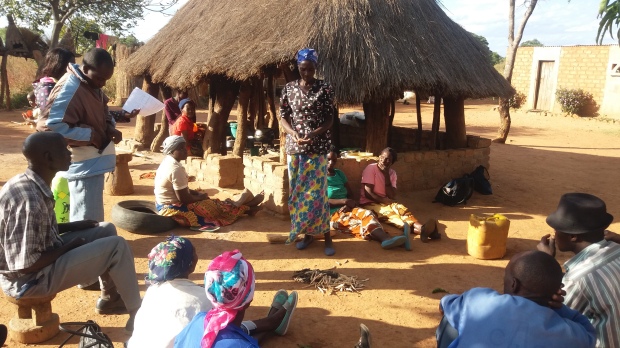
During a farmer-to-farmer exchange event, BaBelitah Simuunza (center, standing), showed off samples of velvet and sugar beans that she planted using CA principles. Farmers discussed the benefits of using legumes for intercropping or in rotation with maize, including as natural fertilizers, soil cover, moisture retention, and food sources. Mbabala, Choma, Zambia. 01 June 2017.
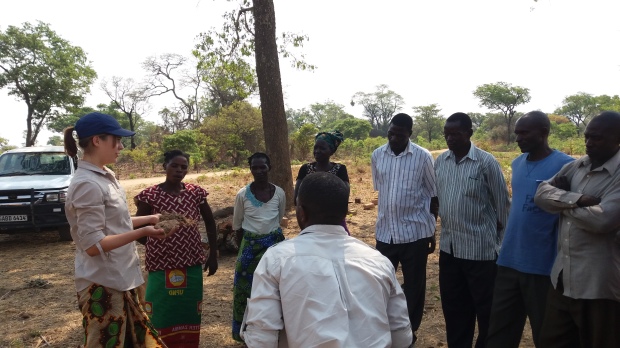
As part of my extension work, I help conduct workshops on Conservation Agriculture principles and practices in the communities where my organization operates. Here farmers discuss the differences between soil clods from ploughed and un-ploughed fields. Siamvula, Choma, Zambia. October 2016.
